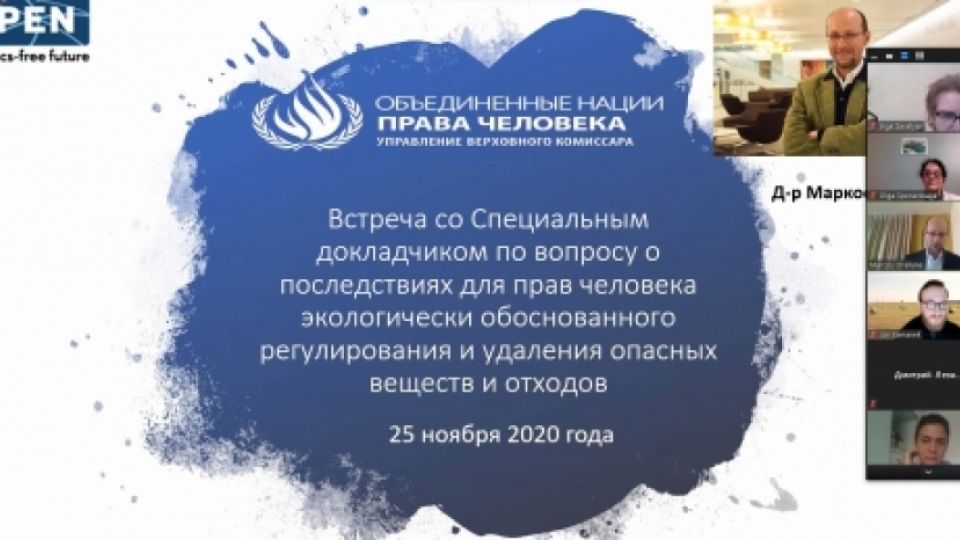On November 25th, representatives of the International Pollutants Elimination Network (IPEN) for the region of Central and Eastern Europe, the Caucasus and Central Asia had a consultation with the UN Special Rapporteur for Human Rights, Chemicals and Waste, Marcos Orellana. The meeting was also attended by members of IPEN from Armenia – the NGO "Armenian Women for Health and Healthy Environment", as well as Arnika's partner organization "Center for Community Mobilization and Support" (CCMS) and the informational NGO "EcoLur".
EcoLur and CCMS presented the topic “Chemical pollution of heavy metals destroying the environment and health: a warning signal from Akhtala, the mining community in Armenia” prepared in cooperation with Arnika. The presentation raised significant issues of both national and regional scale (Tavush region). The issue of the volume of uncontrollable mining was emphasized, when, despite the unprofitability of deposits, the Armenian government approves projects with low yields (e.g. the Amulsar gold deposit). In this situation, the communities affected by mining remain without state support in their efforts to protect their rights to a clean environment, workers' rights and responsibility for business.
During the presentation, attention was also paid to possible tools of protection of the rights of local people from the impacts of mining companies, raising the awareness of pollution, possibility of health damage compensations, greater involvement of government structures and mining companies in eliminating pollution.
Within cooperation of Arnika, CCMS and EcoLur, a number of studies have been carried out on heavy metals and organic pollutants pollution in the Tumanyan region of the Armenian province of Lori. The results of the latest survey showed arsenic to be the most risky element, being present in 94 % of urine samples from children living near the Akhtala tailings pond. This was also confirmed by the previously identified higher risk for children in the case of arsenic. Other elements dangerous to health are cadmium, zinc, lead.
The speech provoked a reaction from a UN special rapporteur. In his closing speech, Dr. Marcos Orellana emphasized the importance of respecting extraterritorial human rights obligations in cases of imported mined materials. ”We need to talk about responsible mining. It has been noted that millions of tons of ore are sometimes mined to produce 1 gram of gold. Of course, there are also mercury and cyanides and other persistent pollutants. How to solve this? Those who import material obtained in this way violating human rights can be brought to justice,” said Orellana. He also expressed interest in information concerning the importers of these ores and the possibility of exerting pressure on these countries.
“We need to show all communities a fair transition to a clean environment. And this must be done by manufacturers. Evidence of a cause-and-effect link between pollution must be provided not by communities trying to save their lives, but by those who are poisoning the environment. And this is the basis for access to justice,” Orellana concluded.







